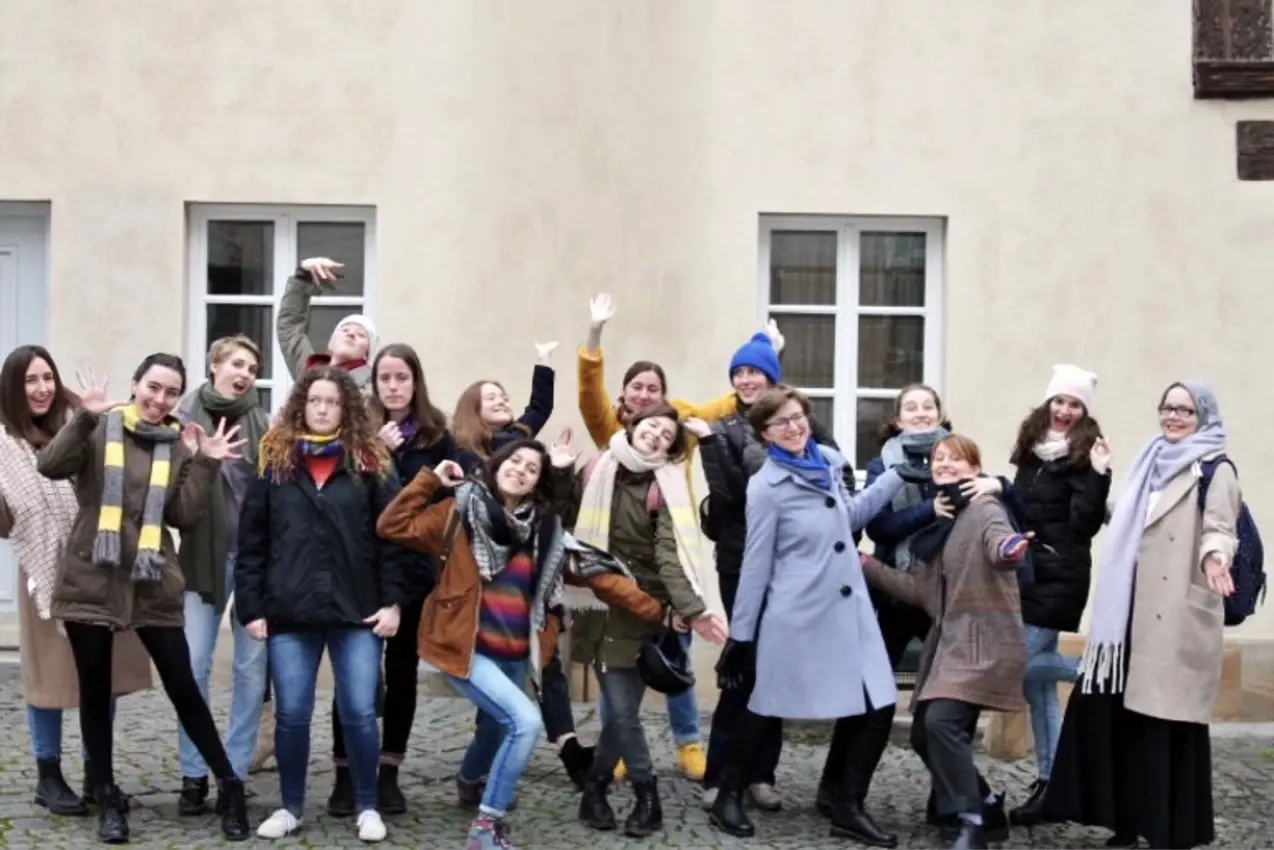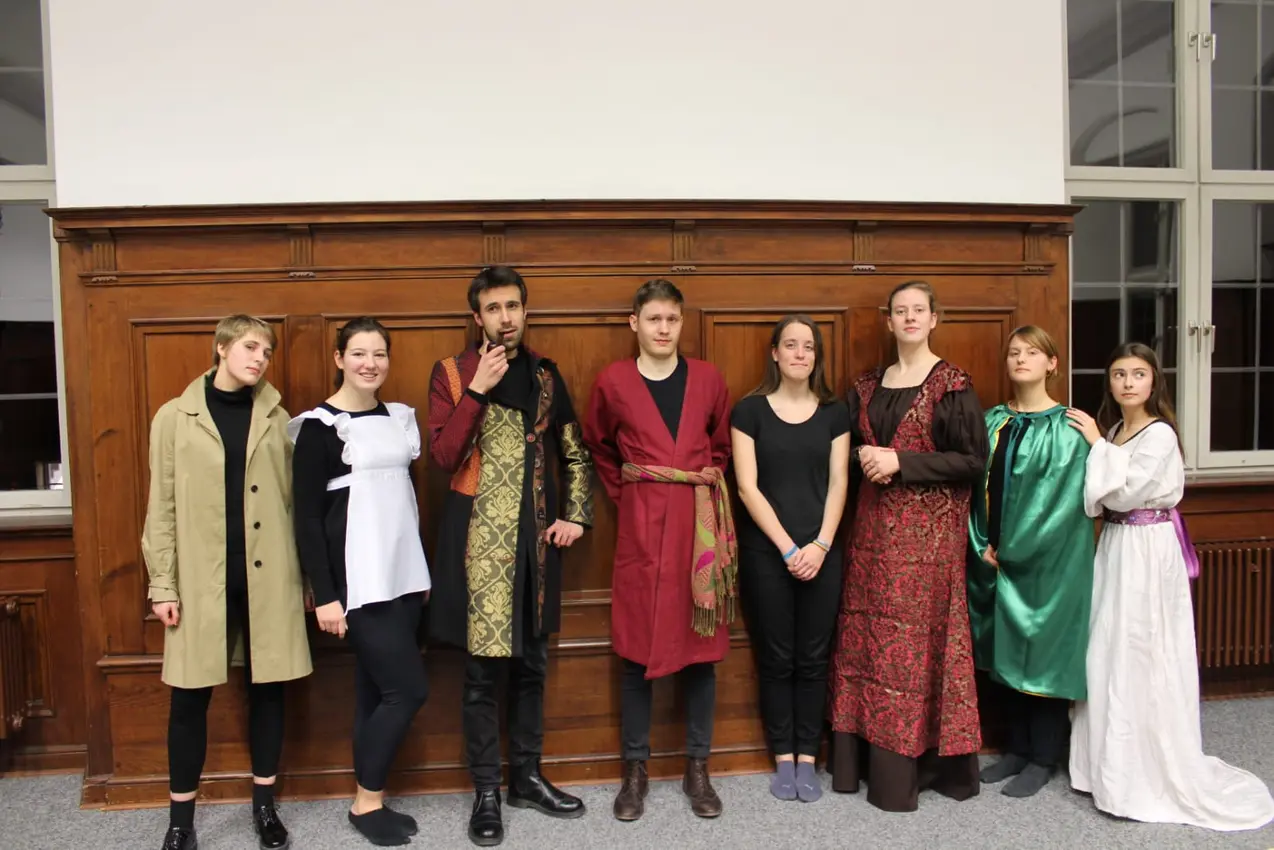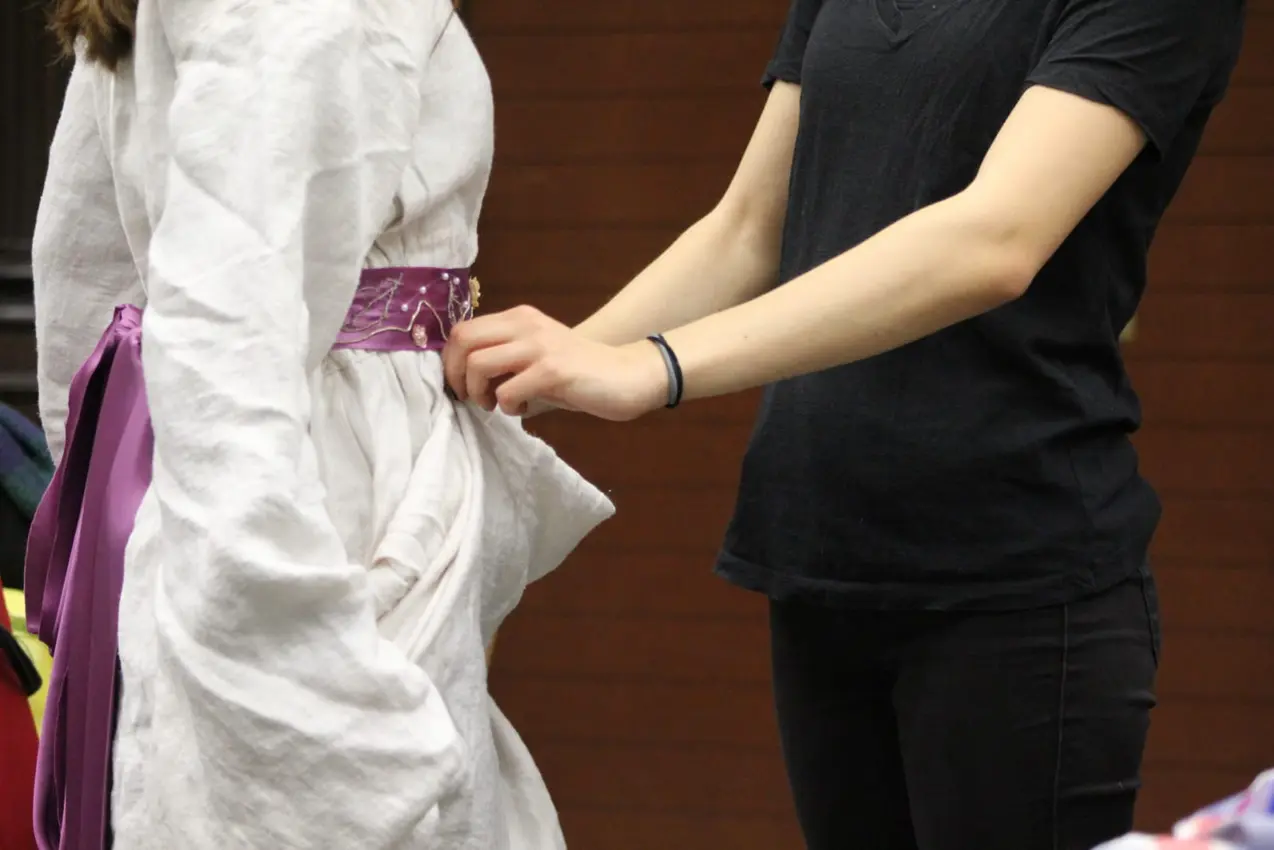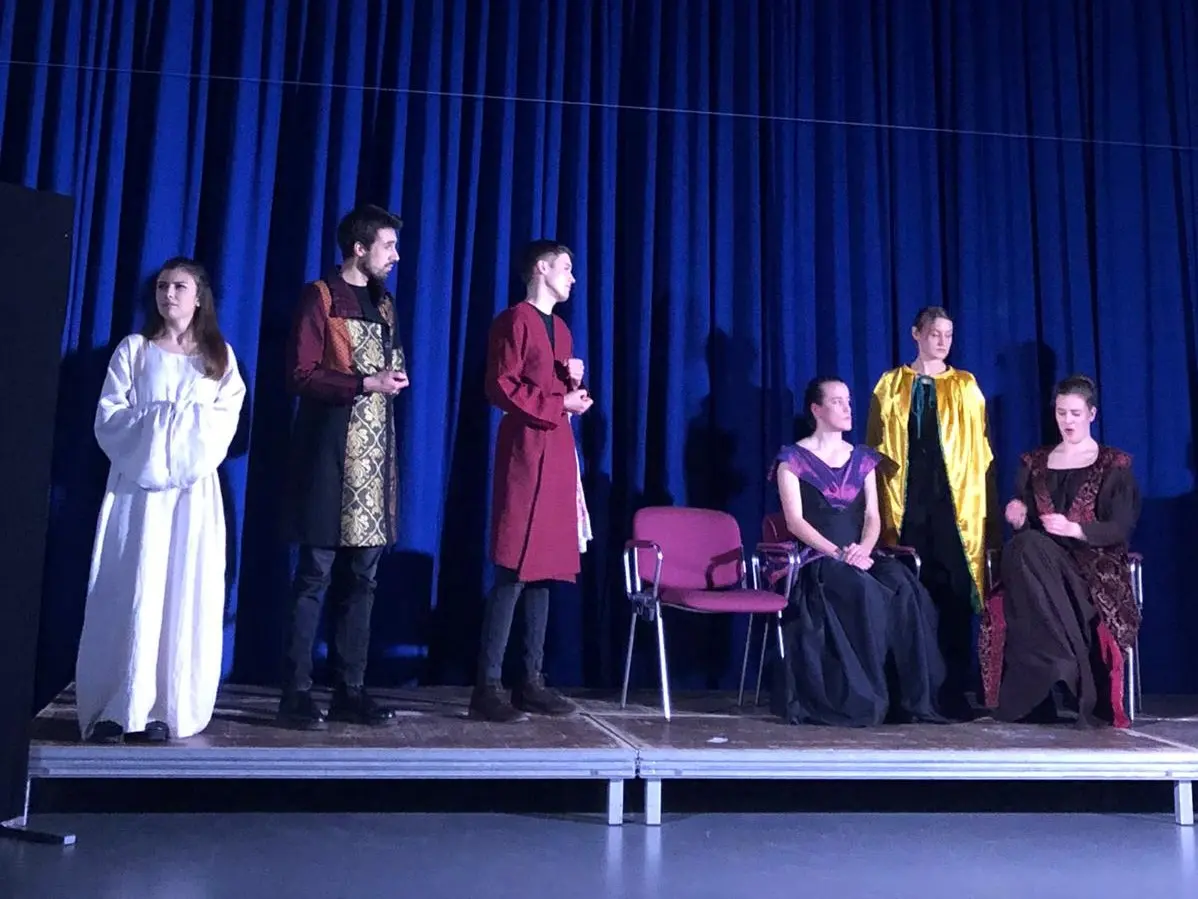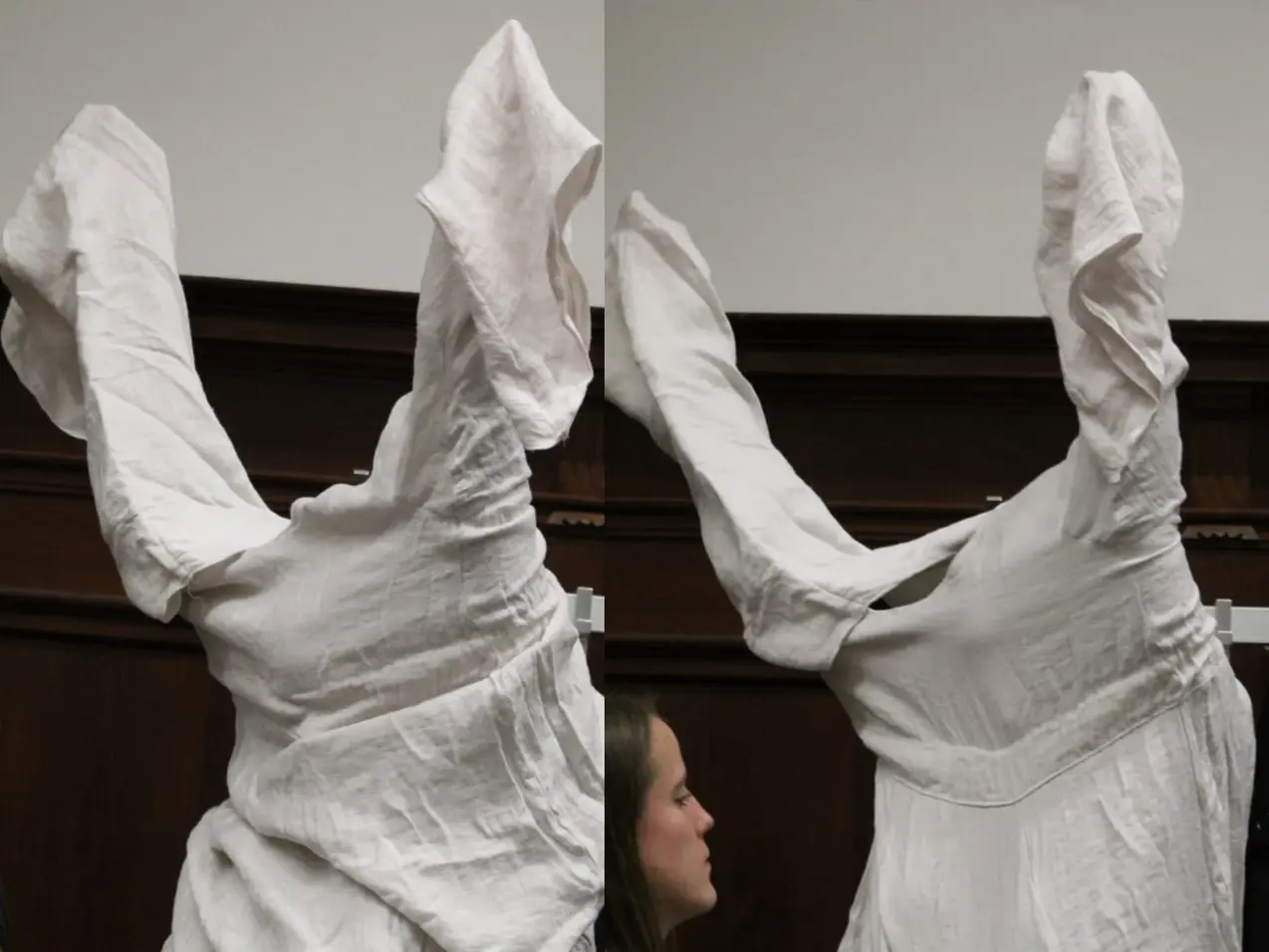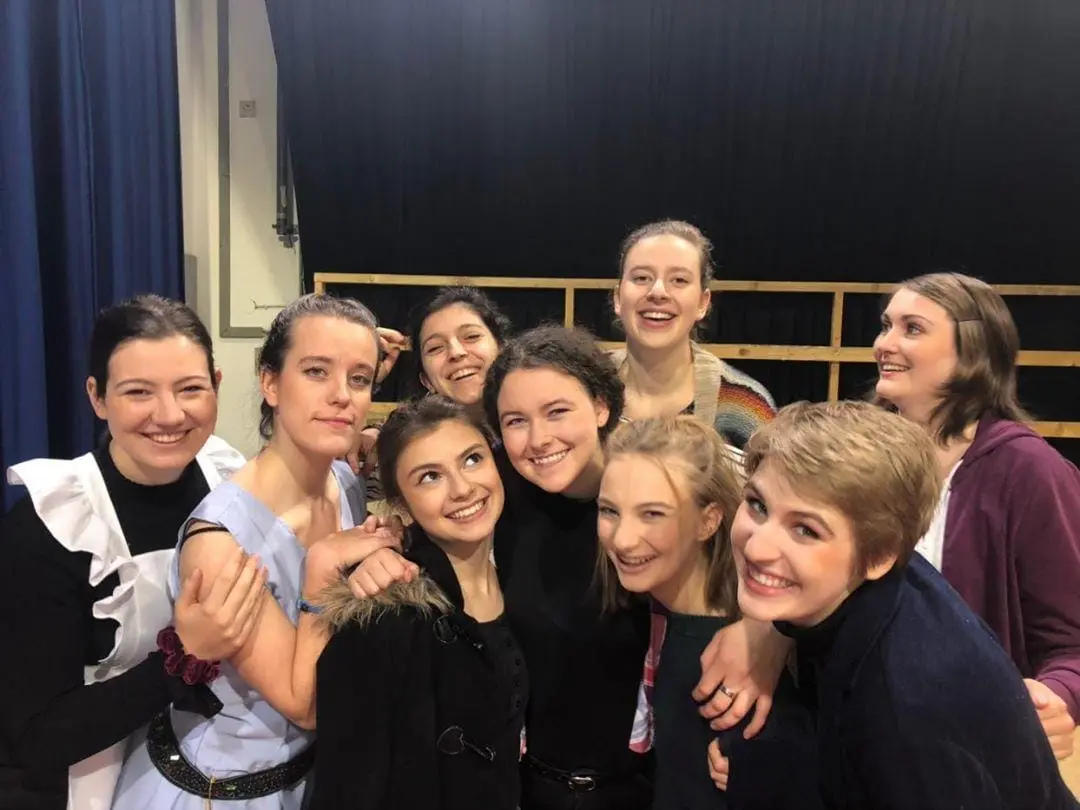Review of the performance
by Hannah Orth; translation by Ellen Werner; photos by Tina Ferincz and Lara Geus
This semester, the Bamberg University English Drama Group’s performance took a special form: A twelve piece-puzzle was created and staged from the first to the third of February – instead of tackling a single play by one author, the directors and actors managed to perform twelve different scenes by eight authors.
“Name what part I am for, and proceed.”
The evening started with the second scene of the first act of William Shakespeare’s A Midsummer Night’s Dream, thus introducing the special element of the performance: the ever-changing scenes and cast.
After this introduction, the audience’s attention was temporarily directed away from Shakespeare to Oscar Wilde’s comedy The Importance of Being Earnest, three hundred years younger than Shakespeare’s play and presenting the conversations between lovers Jack and Gwendolen and Algernon and Cecily.
Back to Shakespeare: An excerpt from his tragedy Antony and Cleopatra – only one of many Shakespeare plays that draw on antiquity – was followed by a scene from his comedy Much Ado about Nothing, an argument between characters Benedick and Beatrice, whose notorious witty wordplay was, of course, not lacking. Richard Brinsley Sheridan’s The School for Scandal, the scene of the evening with the largest number of actors on stage, marks the end of the first part of the performance.
“The Comic Muse, long sick, is now a-dying!”
This line from the prologue of Oliver Goldsmith’s play She Stoops to Conquer started off the second part of the evening, which – fittingly – continued with a speech from Shakespeare’s tragedy Hamlet. Carrying on in this sombre vein, Susan Glaspell’s one-act play Trifles was next, followed in turn by The Battle of Song, a part of the Finnish national epic by Elias Lönnrot, adapted by Aaron Shepard as reader’s theatre. The dark mood was finally resolved by a dialogue between Moth and Armado from the last comedy of the night: Shakespeare’s Love’s Labour’s Lost. Then, a scene adapted from Jane Austen’s novel Pride and Prejudice completed the puzzle.
An unconventional kind of performance here met the great classics of the stage. But it was not only this contrast, but also the varied choice of these classics as well as the scenes’ genres that lent to the BUEDG’s performance an exciting and clever variety.
